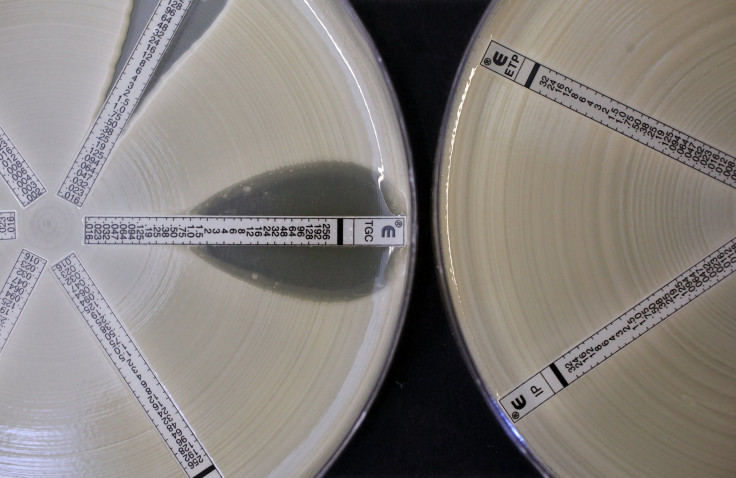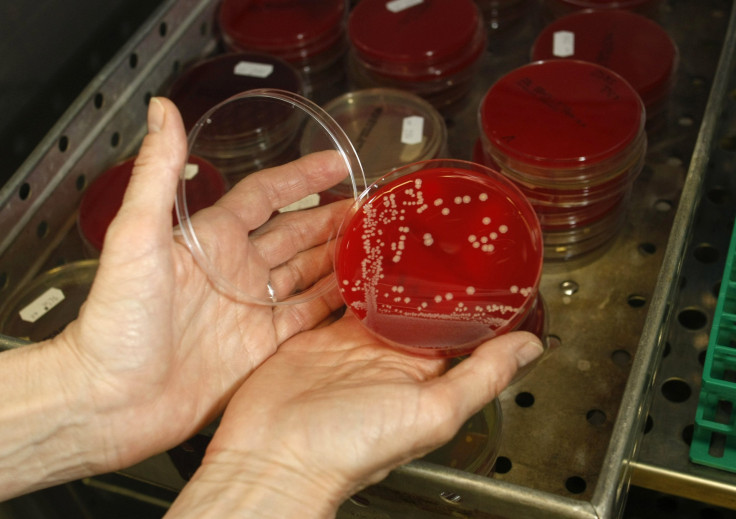What Are Superbugs? Why Using Antibiotics Might Be Bad For The World

Common illnesses no longer routinely kill us thanks to the antibiotics that have been prescribed to suffering patients regularly for the last 70 years. They're now the most commonly prescribed drugs used in human medicine. But microbes are fighting back, morphing into deadly organisms capable of resisting even the toughest drugs. Every year in the United States, these fatal superbugs infect at least 2 million people and kill at least 23,000 of them.
So what are superbugs and what does the future hold for our antibiotic-reliant world?
These organisms have adapted to the drugs humans have been using to kill them. They're no longer killed and their growth is not stopped. Bacteria naturally adapt, like every other creature, but humans have aided their adjustment by overprescribing and misusing medications. Up to 50 percent of the time, antibiotics are prescribed when they're not needed or with an incorrect dosage and duration, according to the Centers For Disease Control and Prevention. By taking antibiotics, patients are actually doing more harm than good by increasing their chances of getting a later infection that is resistant to those same antibiotics.
For example, most cases of colds, flus, sore throats, and bronchitis are caused by viruses which, by definition, cannot be cured with antibiotics. Yet antibiotics are routinely prescribed for these conditions.
The overuse of antibiotics in the food industry as growth promoters for livestock and fish has also contributed to increased resistance, according to the World Health Organization.

The rise in superbug infections is on the world's radar. A United Nations meeting in September ended with all 193 member states signing an agreement to combat antibiotic resistance, calling it a "fundamental threat," according to The Guardian. It was only the fourth time in history that the United Nations held a high level meeting regarding health.
Local leaders and global businesses are taking note. California Sen. Jerry Hill announced Monday his plan to introduce a bill that requires hospitals in the state to report superbug infections in order to track them and therefore be better prepared to respond, the Los Angeles Times reported. In 2015, McDonalds pledged to gradually start buying chicken only from places that don't use antibiotics for growth. Perdue became the first poultry supplier to end antibiotic use for growth in chicken in 2014.
People can protect themselves from superbugs by staying healthy and stopping the spread of germs through routine measures like washing hands regularly. If you're already sick, however, it's important to use antibiotics the right way. Don't take them when you have a viral infection and make sure to finish the full course prescribed by the doctor. By completing your prescribed drugs, you'll increase the chances of killing all the bacteria and reduce the risk of resistance in the future, according to the World Health Organization.
"Without urgent, coordinated action by many stakeholders, the world is headed for a post-antibiotic era, in which common infections and minor injuries which have been treatable for decades can once again kill," said Dr. Keiji Fukuda in the World Health Organization's first ever statement on the matter made in 2014. The organization called for coordinated action between nations and development of new technology and vaccines to combat resistance.
© Copyright IBTimes 2025. All rights reserved.






















